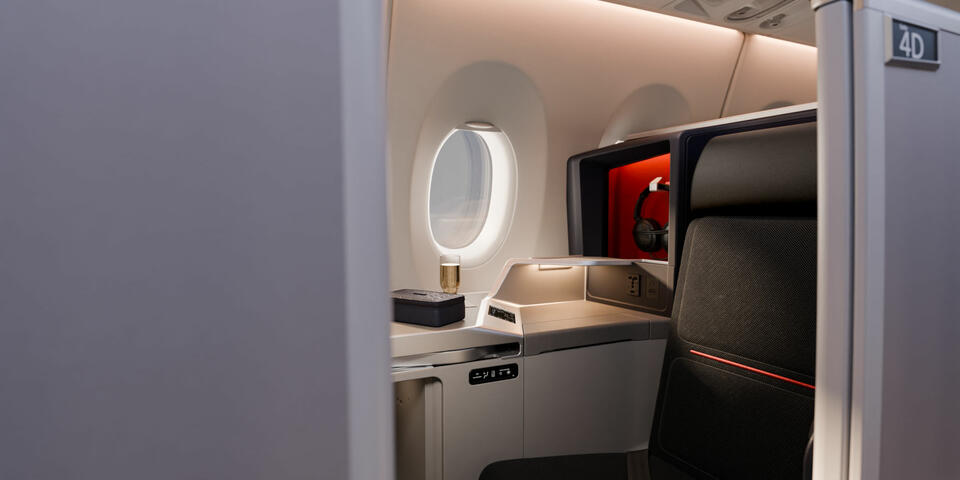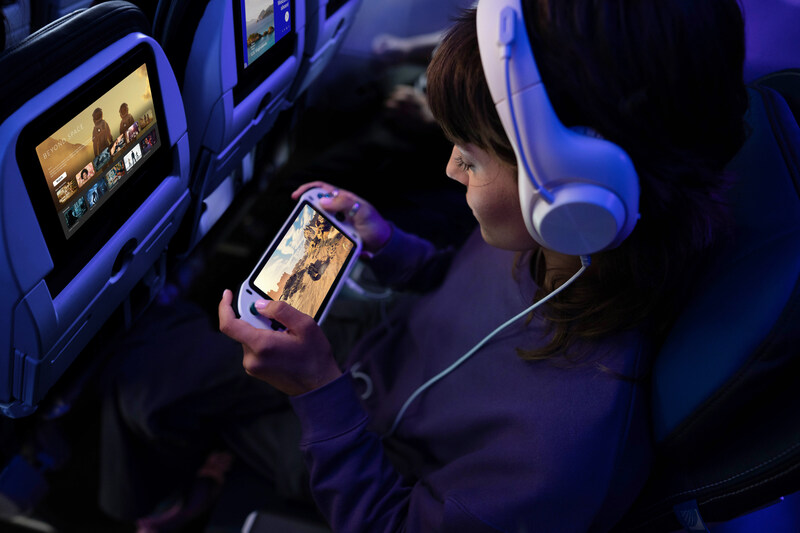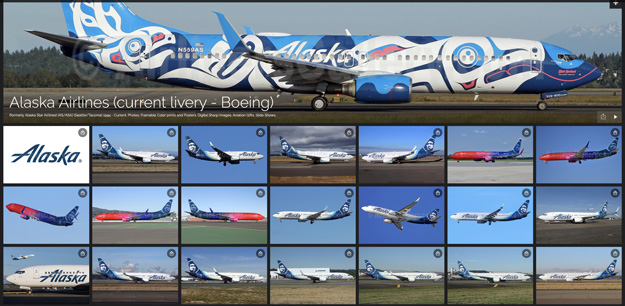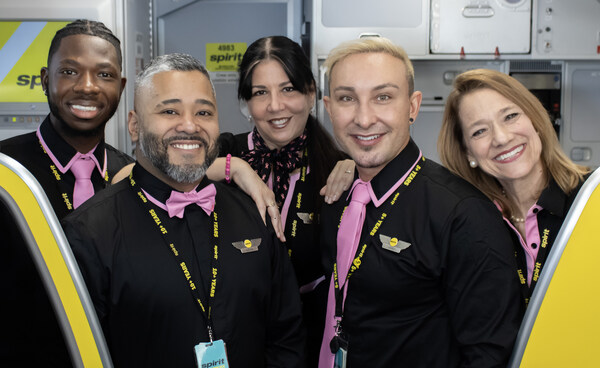From Delta Air Lines:
Go behind the scenes with two teams who play a key part in the product strategy and engineering aspect of a nose-to-tail cabin redesign.

When you’re boarding a plane and looking for your seat or are already thinking about what your first in-flight snack is going to be, you might not immediately notice the finer details of an aircraft: the carpet beneath your feet, the stitching on a Delta Comfort+ seat, the lighting overhead.
But we think you’ll notice (and be impressed by) Delta’s new cabin redesign, which brings fresh seating materials, enhanced lighting, a renewed color palette and more to our entire fleet as it begins to roll out over the next few years. With this redesign on the horizon, we wanted to pull back the curtain on what it takes to carefully craft an interior that is optimized for comfort, safety and style, whether you’re on board for a one-hour domestic hop or an 18-hour trip to the other side of the world.

New cabin design enhances customer experience and showcases the future of flying with Delta. Debuting on a narrowbody Boeing 757 aircraft that will begin flying on domestic and short haul international routes later this fall, followed by a widebody Airbus A350 in early 2025.
We spoke with two teams who play a key part in the product strategy and engineering aspect of a nose-to-tail cabin redesign about how an aircraft is turned into a welcoming sky-high sanctuary.
MEET THE TEAMS
Responsible for on-board product strategy and vision, the Onboard Experience (OBX) team works with Delta engineers, maintenance technicians, flight attendants, commercial teams, design firms and other stakeholders to design everything onboard an aircraft that is considered a hard product.
“If you were to turn the airplane upside down and shake it, what stays is considered hard product,” said Michael Steinfeld, Manager – Onboard Product at Delta. “We’re responsible for the look and feel of the entire cabin – everything from seat design to the colors of the wall and carpet.”

Whether it’s designing new seats, configuring or retrofitting aircraft with our next generation products or activating a cabin redesign across the entire fleet, launching a hard product takes time – anywhere from two to four years just for designing and concepting.
For the OBX team, the first two years of the cabin redesign project involved canvassing Delta’s fleet, interviewing customers and crew members about their travel journeys, and taking note of all the different aircraft variations. This was followed by workshopping: a long process that required looking at thousands and thousands of samples, from walls, carpet and seat material to metal trim and even down to the screws.
It took four years of intensive work to produce a timeless look that reflects Delta’s 100-year heritage and can fit every aircraft in the airline’s diverse fleet.

Colors for the cabin redesign were chosen to complement all seven shades of white that appear across Delta’s fleet of more than 1,000 aircraft.

Delta has used the same bright blue hue – Enchanted Blue – for its seats since 1998. The cabin redesign will feature a more comforting hue – Delta Dark Blue.
A “thread of red” is being introduced in premium cabins to highlight customer features like an extra pocket on the seat in front of you or the location of a headset.
If the OBX team sees the vision, the Cabin Engineering team executes it, and the two teams come together to select the best products that will both improve the customer experience and stand up to the daily rigors of the operation.
“When suppliers show us product offerings, the OBX team looks at those through a customer experience lens – what features do they have and what it offers customers,” said Alexandra Douglas, General Manager – Cabin Engineering and Programs at Delta. “From our team’s lens, we ask how reliable is it? How well does it stand up to the rigors of travel? How accessible are certain items?”

Marrying engineering with maintenance and customer feedback, the Cabin Engineering team runs the gamut of supporting day-to-day needs, to minor configuration updates, to running cabin-based projects. The team’s efforts are also spent mitigating risk and providing products and materials that will help reduce the number of repairs needed. This can mean looking at materials with a heavily critical eye to ensure full compliance and safety as well as developing customized test criteria with manufacturers.
CHOOSING THE RIGHT MATERIALS
It’s an industry standard to test seats by simulating seated passengers shifting around on them, but the Cabin Engineering team took it one step further by dragging backpacks across the seat and dropping luggage on the seat multiple times to mimic real world conditions.
“We found a seat material we loved, but once we did our testing, we found that a simple change in texture on the seat cover allowed bags to grab the material and wear it much more quickly,” said Tabb Pearson, Manager – Cabin Engineering and Programs at Delta.
So the team went back to the drawing board to find something that looked great andwithstood the rigors of daily usage – dropped bags, spills and more. “No matter how good it looks, if it doesn’t last, it’s not worth it,” Pearson said.

Projects that involve changing a cabin interior, especially one as large as a total cabin redesign, take an army of Delta people to execute, from multiple groups in TechOps involved from an engineering standpoint to Global Clean, In-Flight Health and Safety, Sustainability, In-Flight Service, Accessibility and many more. One of the first ways that the OBX and Cabin Engineering teams begin working together is when different product offerings and materials are being considered.
“We start with many options and possibilities, and we work closely with our engineering, maintenance and in-flight colleagues to refine and iterate until we have the best possible product,” said Steinfeld. “It’s a very creative part of the process where we all get to put our heads together, and there are no bad ideas – we work as a team to create something amazing.”

Choosing the right carpet was undoubtedly one of the largest undertakings during the cabin redesign project. Because carpet takes the most wear and tear, a lot of work went into ensuring that not only does the color, texture and pattern stand up to foot traffic, spills and Biscoff cookie crumbs, but that it’s also easy for maintenance to install and for our airport teams to clean.
ELEVATED, WELCOMING SPACES
Every material chosen and decision made during the onboard redesign was done so with a purpose: to ensure every cabin feels premium – because each team understands that every million miler begins as a zero miler.
The nose-to-tail cabin interior transformation is a labor of love, brought to life by hundreds of people across Delta who are passionate not just about getting people where they need to go, but making sure they feel just as at home in the sky as they do on the ground.
“The last full-scale effort like this was two decades ago, and this is all bringing it down to one consistent look and feel,” said Pearson. “As we approach Delta’s centennial, it’s exciting to reflect and look ahead to the brand we present to the next generation. Everyone has contributed to this, and we have something really solid coming up.”





